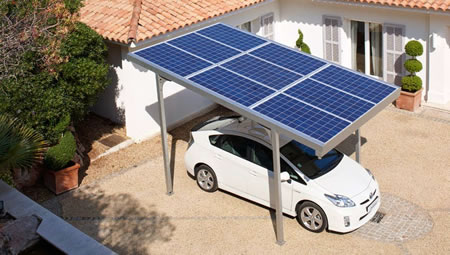In our current society, most people are extremely dependent on the electricity generated by oil and coal, which both add to greenhouse gas buildup in the Environment.
While there are also people that make the switch to solar for its substantial financial benefits-such as lower utility bills and increased home value - the significant environmental benefits are equally important. If you're thinking about switching your home to solar, it's worth taking a few minutes to consider these following advantages.
Solar Energy Reduces Water Pollution

In thermoelectric plants, coal, natural gas, oil, and nuclear energy require cooling - and this requires vast amounts of water. But there's a problem: 72 percent of water pollution comes from coal-fired power plants, and toxic pollution is linked to cancer, heart attacks, and neurological damage. Thankfully, there's a solution.
Generating energy from renewable sources instead of fossil fuels can improve public health and river ecosystems. Solar energy doesn't pollute local water resources, because solar photovoltaic cells don't rely on water to generate power. The result? Cleaner drinking water for your whole family without wasting energy.
Since solar photovoltaic cells don't need water to generate electricity. This is one of the biggest, yet least talked about the environmental benefits of solar. Traditional biomass and geothermal power plants, such as natural gas and coal-fired facilities, require massive amounts of water to facilitate their vital cooling requirements.
With solar energy there is no pollution of local water resources, nor does their operation (which again requires NO water) strain local supplies through the competition with agriculture, drinking systems, and other vital water needs.
Solar Energy Reduces Air Pollution
Harmful carbon dioxide and methane emissions from fossil fuels, our traditional energy source, are leading contributors to global warming and decreased air quality. But generating electricity with solar panels produces no greenhouse gasses whatsoever. In fact, the solar capacity currently installed across the United States is expected to offset as much as 16.8 million metric tons of carbon dioxide a year. That's a huge step towards mitigating the human impact of climate change.
31 percent of greenhouse gas emissions in the United States comes from electricity production - a shocking statistic, especially when methane and carbon dioxide emissions are major contributors to global warming. Greenhouse gases reduce air quality and increase weather extremes. Using solar energy systems can mitigate some of the damage.
Solar Energy Reduces Hazardous Waste

More than 400 million tons of hazardous waste is produced every year, according to the United Nations Environmental Program; however, not all waste is thrown away safely. In Canada, for example, 30 percent of waste producers fail to meet government guidelines for correct disposal procedures.
This is worrying: Nuclear fission products, in particular, continue to be radioactive for thousands of years, meaning they could have a detrimental effect on human health and the environment.
Unlike traditional energy sources, solar power doesn't rely on fuel to generate electricity, eliminating the problem of radioactive waste storage and fuel transportation.
Solar reduces the need for finite resources
Solar energy is renewable. The sun is the world's most abundant energy source, producing an amazing 173,000 terawatts of solar energy every second. That's more than 10,000 times the world's total combined energy use, and it can be used over and over again. In contrast, fossil fuels are non-renewable and while they may seem in abundance today, there will come a time when the world will run out.
Or, the cost of finding and extracting these sources will become too expensive. By that time, the resulting damage to our financial infrastructure and environment may be irreparable. Switching to solar today is the best way to hedge against the reality of finite fuel resources.
From: Environment

